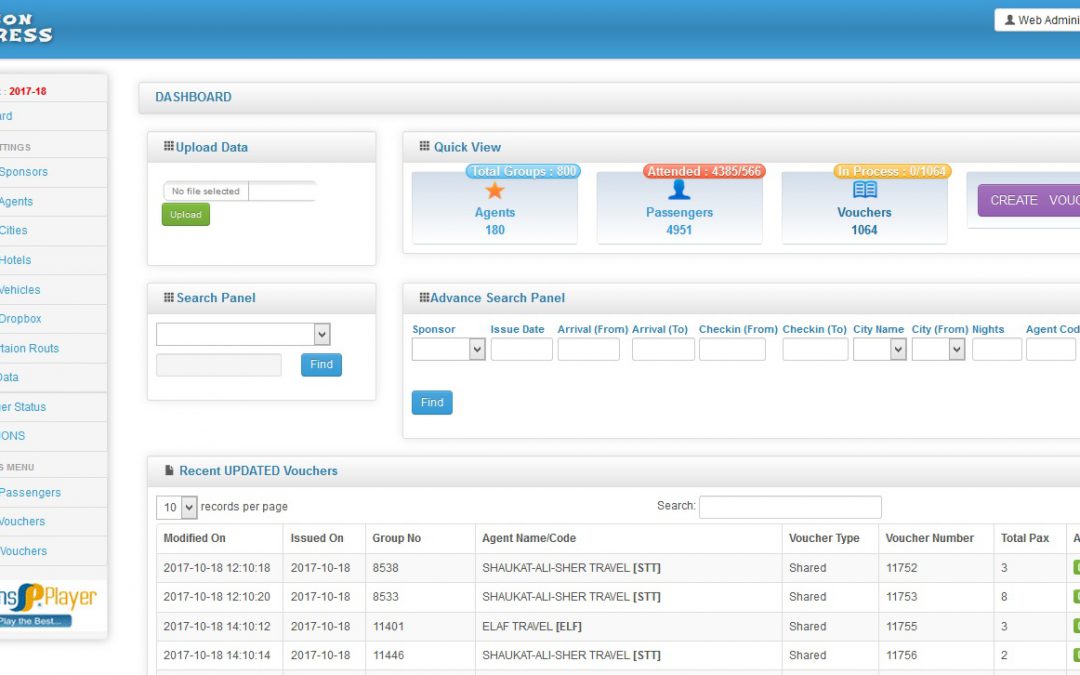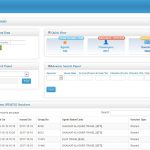Let’s discuss the need for small business software with inventory. Before deciding between custom and off-the-shelf software, you should determine your business’s requirements. You may wish to take into account the following:
What are your objectives for Small Business Software with Inventory Development?
Customized software contains an infinite number of possible features. It is essential to determine which software functionality your business requires. Additionally, it is essential to determine the platform systems with which you want the software to be compatible (Android, iOS, Windows, etc.). Then, you can look into commercial software options to see if they meet your needs or if you need to make your own.
You may need to consult with both your team and your stakeholders, since they may be in the best position to determine your brand’s technical, consumer, and marketing requirements. Then, you can apply these requirements to your software concepts.
What do you hope to accomplish with this program for your business? You may wish to increase brand awareness with your program, or you may wish to sell things via your software. Identifying your business’s objectives will help you choose the finest software for your company. When you know exactly what your business needs are and can explain them, bespoke software developers will be able to give you a good business solution.
Personalized Software Development
Benefits of Custom Software
Custom software is designed to address the specific requirements of your circumstance. Custom software is made to fit your needs, whether you want mobile or web-based apps, one-time or ongoing software development, to use your existing brand, or to start something completely new. Customized software is simply updatable. Since you own the software, you may make modifications as your business and brand evolve over time. Additionally, when technology evolves, you may adapt your program accordingly.
Custom software provides a competitive advantage because the program is unique to your organization. This provides you with an advantage over your competitors, who lack access to the commercial potential that your software enables. Some of our customers have even made their own software systems that they sell to other people in their industry.
Cons of Tailored Software
Customization is a time-consuming and, thus, costly procedure. Custom software development may necessitate an up-front financial commitment. However, this expenditure becomes an asset, as the software is eventually meant to streamline your business, minimize employee workload, and meet all of your requirements. Many commercial software options have monthly membership fees that can add up to as much as or even more than the cost of making your own.
Custom software development could be time-consuming. Developers must construct the software from scratch. Depending on the feature list being constructed, the software development process may take weeks or months. Think of it like building a house: the development team will start with the frame and add features and important parts as they go up the floors. You rely on a talented group of programmers to create your application. It is essential to investigate the organization: if you choose a reputable, established company, you will obtain a high-quality product with scalable, easily updated code.
Custom Software Development Examples
Amazon and eBay have established their own eCommerce platforms to facilitate transactions between customers and merchants. They promote a variety of consumer goods, including electronics, fashion, furniture, food, toys, and jewelry. Consumers are able to build a profile, add products to wish lists, and purchase items for delivery to any desired area.
Essential Designs created the Vancouver School Board Mobile App, which enables educators to instantly access emergency procedures, instant messaging, and contact information for the district’s 109 schools.
In emergency scenarios, integration with automated SMS messaging services enables fast access to problem-solvers. The VSB can add more districts at any time because the back end is fully automated. Each district has its own emergency data, contacts, and outcomes. The Lifeguard Mobile App, launched by Lifeguard OD in partnership with British Columbia Emergency Health Services (BCHES) and built by Essential Designs, is a digital “safe consumption” solution created for the opioid crisis in British Columbia. To make the program generally accessible, both native iOS and native Android mobile applications were developed. The app is meant to protect drug users from overdosing by making it easier for them to get in touch with emergency services.
Best Software for Small Business in terms of Off-the-Shelf Software Benefits
Standard Software Integration
Standard software is intended for speedy installation and operation. However, off-the-shelf software is a package meant to fit the demands of a range of enterprises and is therefore not tailored to your specific requirements. So, the off-the-shelf software may need small changes, or “tweaks,” to work with your company’s system and the platforms you already have (iOS, Android, Windows, etc.). Because it is not produced from scratch, like custom software development, off-the-shelf software does not require a significant initial cost. Nonetheless, software integration, subscription fees, and maintenance can resemble these initial expenditures. It is essential to leave room in your budget for rising monthly expenses. Standard software can be trustworthy.
Because the software package is mass-produced, you will have access to more materials, including reviews and examples of the product’s application in a range of tasks. As they may have dealt with the same implementation troubles as you, other businesses that have purchased the same commercial software may have solutions to the problems you are experiencing.
The Cons of Commercial Software
It is possible that off-the-shelf software does not satisfy your special needs. If the software is inefficient, in the sense that it is incompatible with your existing legacy software or office systems (iOS, DOS, Windows, etc.), you may lose money. The loss may result from the time required to modify the software to meet your business needs or from the requirement to engage someone to manage compatibility issues, resulting in a wage expense.
Customization of off-the-shelf software can be challenging
Upgrades to the software may be unavailable or more expensive. As your organization expands, you will need to adapt your software accordingly. You may not be able to do this fast, conveniently, or cost-effectively with commercially available software. It is possible that commercial software is incompatible with many systems. Software on various platforms (e.g., iOS, Android, and Windows) may not be compatible with off-the-shelf software and may necessitate unique APIs (Application Programming Interfaces) for optimal integration.
Because this software is mass-produced, your competitors will have access to it. This suggests that your business ideas could be copied if implemented using this software. Using the same software, your competitors will be able to develop the same concepts. Permanent assistance can be discontinued. In the realm of Software as a Service (SAAS), you subscribe to a monthly subscription for the software. Frequently, online software companies are acquired, merge and take a new direction, or even close their doors, leaving your organization without a supported solution.
Examples of commercial software
Gmail and Microsoft Outlook are software programs that enable millions of users to interact via email. Sage and QuickBooks are software-as-a-service (SAAS) accounting solutions that record and process accounting transactions within functional modules such as accounts payable, accounts receivable, journal, general ledger, payroll, and trial balance. McAfee Total Protection and Norton Antivirus are antivirus applications that handle pop-up advertisements and identify and stop infections. Antivirus software provides protection against ransomware, viruses, spyware, and other internet threats.
Selecting Developers For Developing Small Business Software with Inventory Development
It is essential to choose a custom software or software development company capable of meeting your unique business needs. Custom software development begins with planning, wireframing, creating a design, building and testing the code, and deploying the new system. Software integration combines off-the-shelf software by installing it on a local server or in the cloud, using application programming interfaces (APIs) to make the software work together, and making sure the processes meet your business’s needs.





